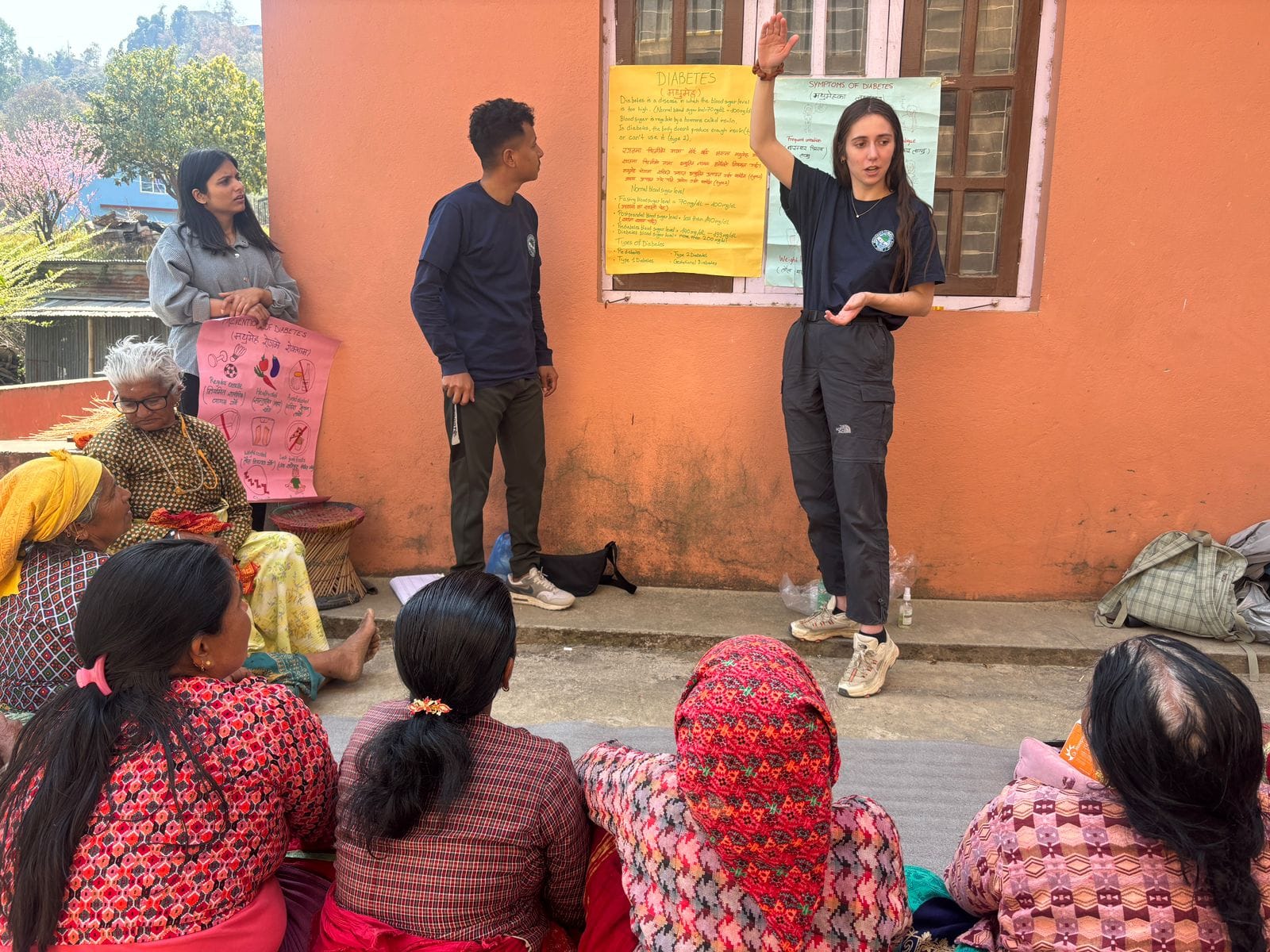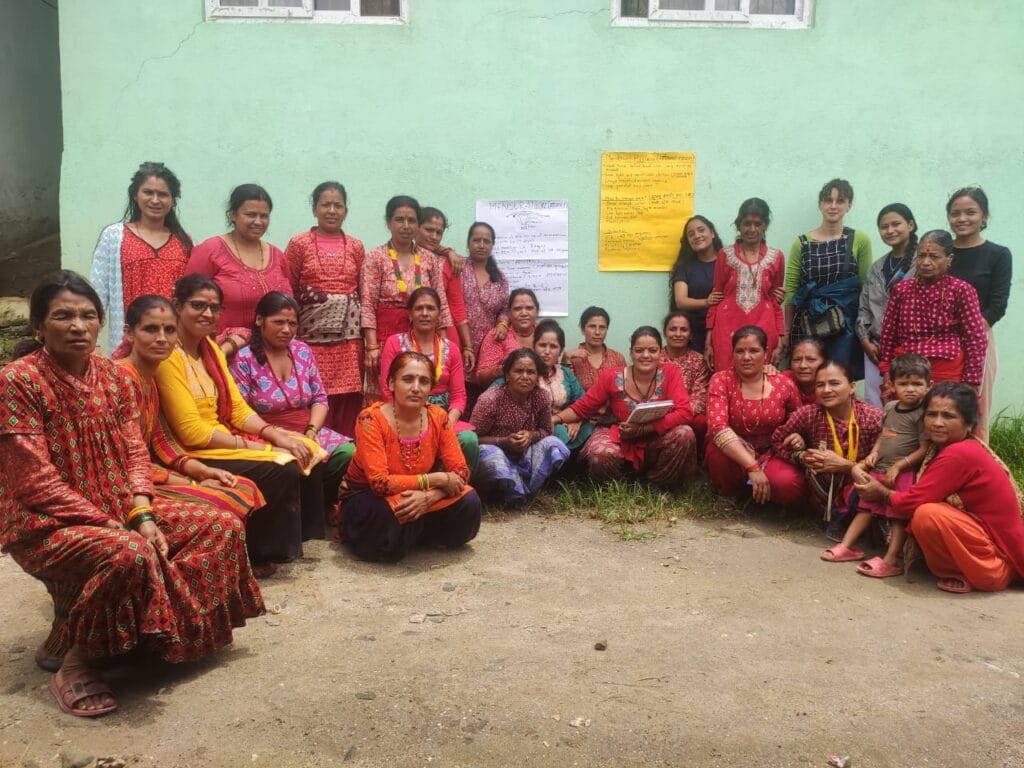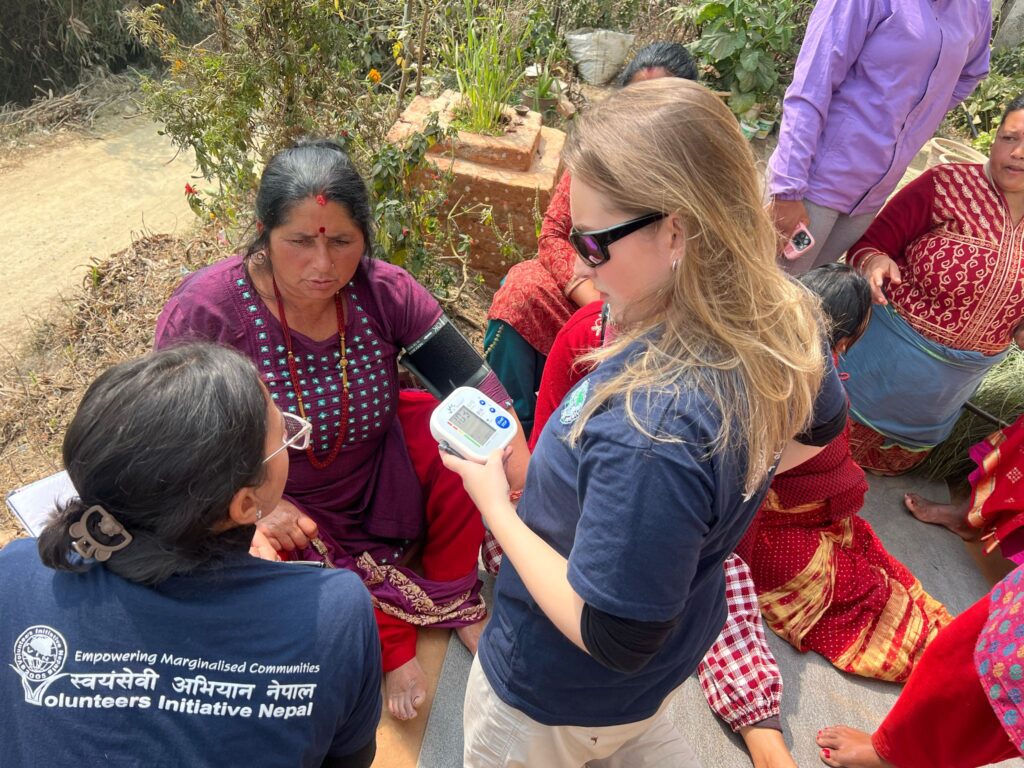
Infectious Disease Awareness Volunteer Program in Nepal
Nepal is taking bold steps toward a healthier future with its innovative Infectious Disease Awareness Volunteer Program. This initiative is designed for every aspiring Infectious Disease Prevention Volunteer and those seeking Infectious Disease Volunteer Program opportunities. In the first 100 words, you’ll learn that this program unites local communities with international expertise to educate, prevent, and respond to infectious diseases. By joining as a Volunteer for Disease Prevention, you play a crucial role in reducing outbreaks, promoting health education, and engaging in Infectious Disease Awareness Volunteering, which truly matters.
Project Description
Introduction
Nepal’s Infectious Disease Awareness Volunteer Program is a dynamic initiative created to educate communities, prevent outbreaks, and ensure a healthier environment for all. This program empowers volunteers to become Infectious Disease Prevention Volunteers by providing hands-on training, resources, and support to mitigate the impact of infectious diseases. Whether you are passionate about becoming an Infectious Disease Volunteer or exploring Global Health Volunteer Opportunities, this project will equip you with the skills and knowledge necessary to serve as a Volunteer for Epidemic Prevention.
Background
Nepal faces unique public health challenges due to its diverse geography and evolving healthcare needs. Over recent decades, the country has battled various infectious diseases, ranging from seasonal influenza outbreaks to emerging threats like dengue and COVID-19. With over 70% of its population living in rural areas, access to reliable health information is often limited. Historical data indicate that infectious disease outbreaks have led to significant morbidity and mortality, especially in vulnerable communities. The Infectious Disease Awareness Volunteer Program was established to bridge the gap between public health initiatives and community engagement.
Local statistics reveal that in the past decade, infectious diseases have affected thousands of lives, with epidemics such as dengue fever and cholera leaving lasting impacts. This program is rooted in Nonprofit Disease Prevention Volunteering principles and aims to foster resilient communities through proactive education and intervention strategies.
Key Objectives
- Enhance Public Health Literacy: Train volunteers to educate communities on infection prevention, hygiene practices, and early symptom recognition.
- Promote Early Detection: Support local health centers in implementing screening programs for rapid disease detection.
- Increase Community Engagement: Build a Public Health Volunteer Program network that works with local health authorities.
- Facilitate Vaccination Campaigns: Assist in organizing vaccination drives and immunization campaigns to protect vulnerable populations.
- Strengthen Emergency Response: Equip communities with tools and training to respond swiftly to emerging infectious threats.
- Develop Sustainable Health Practices: Integrate traditional knowledge with modern medical practices for long-term health benefits.
- Foster Global Health Collaboration: Link-local efforts with Global Health Volunteer Opportunities to share knowledge and resources.
- Monitor and Evaluate Health Outcomes: Establish data collection systems to assess the effectiveness of interventions.
- Enhance Community Resilience: Empower locals to participate proactively in Infectious Disease Awareness Volunteering.
- Celebrate Success Stories: Highlight and share community success stories to inspire continued action and support.
Why Volunteer for This Project?
The Need
Infectious diseases remain one of the most pressing public health issues globally. Climate variability, limited healthcare access, and population density in Nepal contribute to recurring outbreaks. Recent data indicate that outbreaks can affect thousands in remote regions, with over 40% of rural families encountering challenges in accessing timely medical care. As a Volunteer for Disease Prevention, your work can save lives by educating communities and implementing early prevention strategies. The urgency of this mission is underscored by the World Health Organization’s emphasis on community-led health education as a critical factor in controlling epidemics.
Global Relevance
The significance of this initiative resonates worldwide. The United Nations emphasizes SDG 3 (Good Health and Well-Being), which aims to reduce global mortality from infectious diseases. By joining this program, you contribute to global efforts by serving as an Infectious Disease Campaign Volunteer. Your participation helps connect local actions to international public health standards, making it a powerful example of Infectious Disease Prevention Volunteering in action.
Local Voices
Local community members speak passionately about the difference volunteers make. A village elder in the Terai region shared,
“With your help as an Infectious Disease Prevention Volunteer, we can protect our families and ensure a safe future for our children.“
– Local Community Leader, Birgunj
This heartfelt testimony demonstrates the real-world impact of the Infectious Disease Awareness Volunteer Program and motivates others to join the cause.
Volunteer Roles and Responsibilities
Volunteers are at the heart of the Infectious Disease Awareness Volunteer Program. Your role is dynamic, hands-on, and essential for community well-being. Here are 10 core tasks that every volunteer will undertake:
Core Tasks
- Conduct Health Education Sessions: Lead interactive workshops on proper hygiene, sanitation, and disease prevention.
- Perform Community Health Screenings: Assist in setting up and operating mobile clinics for early detection of infectious diseases.
- Distribute Health Materials: Provide brochures, posters, and other educational resources to promote public health.
- Coordinate Vaccination Drives: Support local health teams in organizing and running immunization campaigns.
- Facilitate Cleanliness Campaigns: Organize community clean-up initiatives to reduce breeding grounds for disease vectors.
- Record and Monitor Data: Collect data on health trends and disease outbreaks to help monitor community health.
- Engage in Door-to-Door Outreach: Visit households to offer guidance on preventing the spread of infections.
- Assist in Emergency Response: Provide first aid and help coordinate rapid response efforts during outbreaks.
- Mentor New Volunteers: Train and guide recruits in effective Infectious Disease Awareness Volunteering techniques.
- Advocate for Public Health Policies: Participate in local health policy meetings and advocate for improved community health standards.
Daily Activities
A sample day in the Infectious Disease Awareness Volunteer Program is designed to balance structured tasks with flexible community interaction:
- 08:00 – 08:45: Breakfast and team briefing.
- 08:45 – 09:30: Travel to the assigned community or health center.
- 09:30 – 12:00: Conduct health education sessions and perform screenings.
- 12:00 – 13:00: Lunch break with local flavors.
- 13:00 – 15:00: Continue with vaccination drives or distribute health materials.
- 15:00 – 16:00: Engage in door-to-door outreach or data collection.
- 16:00 – 17:00: Return to accommodation and debrief.
- 17:00 Onwards: Cultural immersion, personal reflection, or special projects.
Special Projects
In addition to daily activities, the program includes special initiatives such as:
- Mobile Health Clinics: Deploy teams to remote areas to provide on-the-spot medical support.
- Seasonal Health Fairs: Organize community events to promote preventive care during peak outbreak seasons.
- Youth Health Ambassadors: Involve local youth in spreading awareness and ensuring the program’s sustainability.
- Emergency Simulation Drills: Conduct mock drills to prepare communities for rapid outbreak response.
- Digital Health Campaigns: Utilize social media and digital tools to reach a broader audience with health information.
Skills and Requirements
Required Skills
- Passion for Public Health: A genuine desire to improve community health and prevent disease.
- Assertive Communication: Ability to convey health information in clear, relatable language.
- Basic Medical Knowledge: Familiarity with common infectious diseases and prevention strategies is a plus.
- Team Spirit: Willingness to work collaboratively in a diverse team setting.
Eligibility
- Age: Open to individuals aged 18 and above. Participants under 18 may join with guardian consent.
- Commitment: A readiness to commit to fieldwork and community engagement.
- Flexibility: Ability to adapt to different working conditions, including rural settings.
Preferred Skills
- Experience in Health Education: Background in healthcare, education, or community service is beneficial.
- Multilingual Abilities: Proficiency in English and a willingness to learn Nepali phrases to enhance community rapport.
- Leadership Qualities: Ability to take initiative and mentor others, contributing to the sustainability of Infectious Disease Awareness Volunteering.
- Technological Savvy: Basic digital communication and data collection skills can improve efficiency.
Cultural Experience
Cultural Immersion
Volunteering with the Infectious Disease Awareness Volunteer Program offers more than professional development—it’s a chance to connect with Nepalese culture deeply. Volunteers enjoy authentic experiences through community festivals, traditional meals, and local customs. Engaging with the community allows you to understand the cultural context behind health practices, making your role as an Infectious Disease Volunteer even more impactful.
Language Learning
Language classes are available to help you learn essential Nepali phrases and local dialects. This initiative not only improves communication but also enriches your overall volunteer experience. As a Public Health Volunteer Program member, learning the local language fosters trust and deepens your community connections.
Logistics and Support
Accommodation
Volunteers are provided with comfortable housing options. Whether shared accommodations, homestays, or dedicated volunteer houses, you’ll experience genuine Nepali hospitality while forging lasting friendships with locals.
Meals
- Daily Meals: Enjoy three authentic Nepali meals daily, crafted from fresh, local ingredients.
- Dietary Accommodations: Vegetarian and special dietary requirements are catered for, ensuring all volunteers feel welcome and nourished.
Transportation
Reliable transportation includes airport pickups and daily commutes to various project sites. This logistical support ensures that you can focus on your role as a Volunteer for Disease Prevention.
On-Site Support
Experienced coordinators and local staff are available at all times. Their guidance and support ensure you are well-prepared and safe as you engage in Infectious Disease Volunteer Opportunities. They also facilitate training sessions and provide ongoing mentorship throughout your volunteer journey.
Health and Safety
Your well-being is paramount. Volunteers receive detailed briefings on necessary vaccinations, travel insurance is provided, and strict emergency protocols are in place. Regular health check-ups and safety drills help maintain a secure working environment, reinforcing our commitment to Nonprofit Disease Prevention Volunteering.
Program Fees and Inclusions
For full details on fees and what is included in your volunteer experience, please refer to the Program Fees page. The fees cover:
- Accommodation
- Meals
- Transportation and logistics
- On-site training and support
- Cultural immersion activities
This transparent fee structure ensures that your investment as an Infectious Disease Prevention Volunteer is maximized for personal growth and community impact.
Impact and Outcomes
Volunteer Impact
By participating in the Infectious Disease Awareness Volunteer Program, you gain invaluable personal and professional benefits:
- Skill Development: Enhance your leadership, communication, and crisis management skills.
- Cultural Exchange: Experience a deep cultural immersion that broadens your perspective on global health.
- Career Advancement: Gain practical experience that enhances your resume and opens doors to Global Health Volunteer Opportunities.
- Emotional Rewards: Witness firsthand how your efforts improve community health and save lives.
Community Impact
The program has achieved significant results in improving local health outcomes:
- Increased Awareness: Over 10,000 community members have participated in health education sessions, leading to improved hygiene practices.
- Reduced Outbreaks: Communities have experienced a notable decrease in infectious disease outbreaks due to proactive intervention measures.
- Enhanced Health Infrastructure: Local health centers operate more efficiently with volunteer support, ensuring timely screenings and vaccinations.
- Empowered Communities: Local voices are now actively advocating for better health policies, thanks to the skills and insights gained through Infectious Disease Awareness Volunteering.
These outcomes are a testament to the transformative power of committed volunteers and the collaborative efforts of public health professionals in Nepal.
Success Stories and Testimonials
Volunteer Experiences
Sanjay, a former volunteer, recalls his time with the program:
“Being a part of the Infectious Disease Awareness Volunteer Program changed my life. I learned practical skills in disease prevention and how to connect with people on a deeper level. As an Infectious Disease Prevention Volunteer, I saw the difference we made daily.”
His words echo the sentiments of many who have embraced this role, proving that every small effort contributes to a more significant impact.
Local Impact Stories
A nurse from a rural health clinic in Kathmandu shared,
“Our community is now better informed and more proactive about disease prevention, thanks to the dedication of volunteers. Their work in Infectious Disease Awareness Volunteering has immeasurably strengthened our local health system.”
These testimonials showcase how individual actions lead to widespread improvements in public health.
Application Process
Are you ready to make a lasting impact on community health? Follow these steps to join our Infectious Disease Awareness Volunteer Program:
- Complete the Online Application: Visit this link to fill out the application form.
- Submit Your Resume: Attach your CV and two professional or academic references.
- Await Confirmation: Look out for a confirmation email with further instructions.
- Pay the Booking Fee: Secure your spot with a €150 program booking fee.
- Receive the Pre-Departure Pack: Access comprehensive guidelines and training materials before departure.
- Final Payment: Process the remaining program fee upon arrival or via wire transfer.
This streamlined process ensures that your transition from applicant to a dedicated Volunteer for Epidemic Prevention is seamless and efficient.
Frequently Asked Questions (FAQs)
What is the main objective of the Infectious Disease Awareness Volunteer Program in Nepal?
The program aims to educate communities, prevent infectious disease outbreaks, and support local health initiatives. It trains volunteers as Infectious Disease Prevention Volunteers to implement effective public health measures.
Who is eligible to join the program?
The program is open to individuals aged 18 and above. Participants under 18 may join with guardian consent. A background in health, community service, or education is beneficial but not mandatory.
How long does the volunteer commitment last?
The commitment varies from a few weeks to several months, depending on the specific role and community needs. Flexibility is encouraged, allowing you to contribute as a dedicated Infectious Disease Volunteer.
What support will I receive during the program?
Volunteers receive comprehensive support, including transportation, accommodation, meals, on-site guidance, and regular health and safety check-ups. This ensures a safe and productive experience as a member of the Public Health Volunteer Program.
What are the key responsibilities of volunteers?
Volunteers engage in health education, community screenings, vaccination drives, data collection, and door-to-door outreach. They act as Infectious Disease Campaign Volunteers and support local initiatives to prevent outbreaks.
Are there opportunities for international volunteers?
Yes, the program welcomes Global Health Volunteer Opportunities. Volunteers worldwide are encouraged to join and contribute to this impactful Infectious Disease Awareness Volunteering effort.
How do I apply for the program?
To apply, complete the online application, submit your resume, await confirmation, pay the booking fee, receive your pre-departure pack, and finalize your payment upon arrival. This straightforward process secures your role as a Volunteer for Disease Prevention.
Join Us Today To Make A Difference !
Apply Now or reach out at support@vin.org.np. Whether you aim to serve as an Infectious Disease Prevention Volunteer or explore Global Health Volunteer Opportunities, your journey toward impactful change starts here.
Gallery






